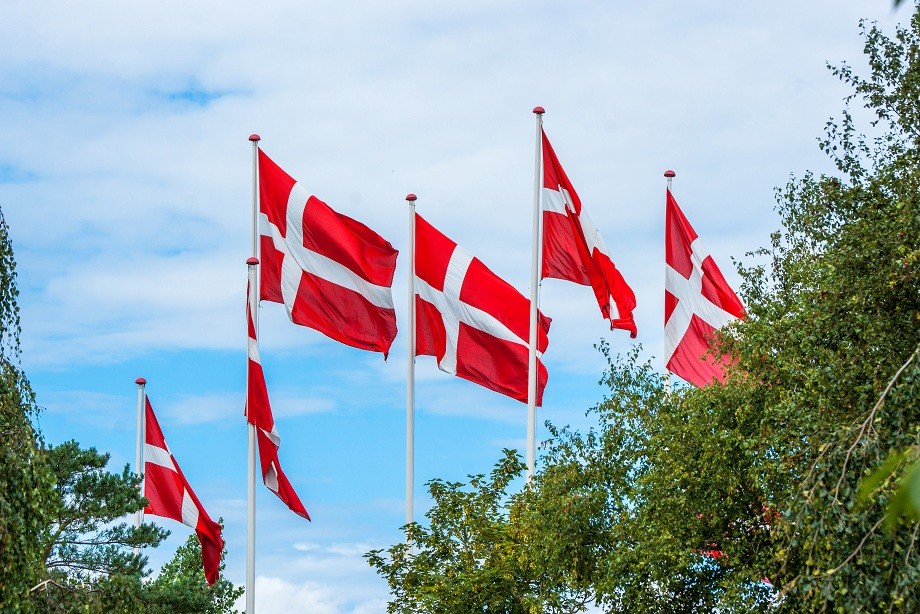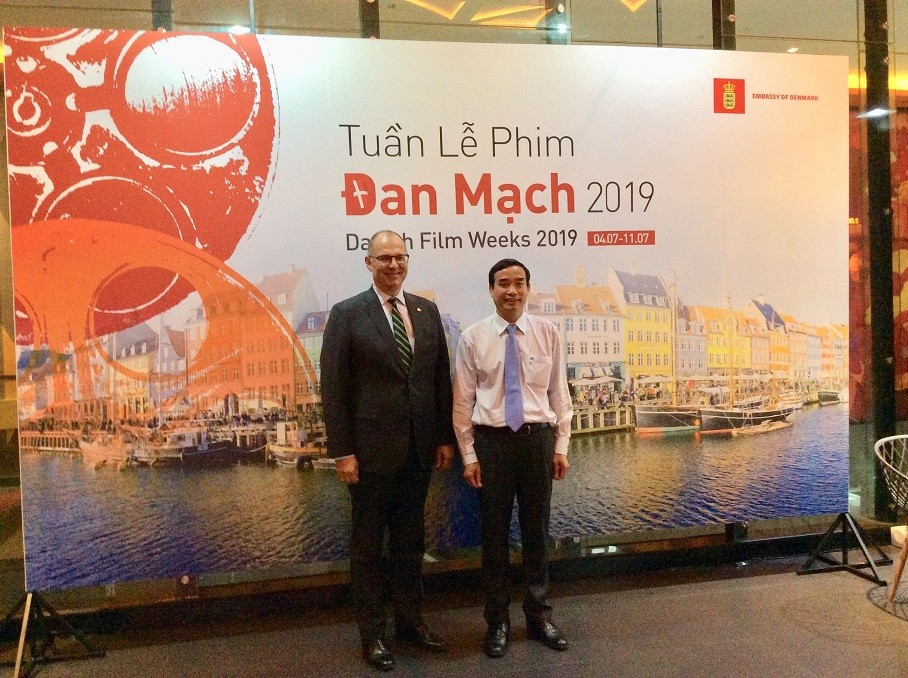
Vietnam is an important partner for Denmark when it comes to green transition: Danish Ambassador
Latest
 |
| Constitution Day is very important to the Danes as it marked the birth of Danish democracy. |
Could you please introduce the Danish Constitution Day? How important is this day to the Danish?
Constitution Day is the closest thing the Danes have to a National Day. It is celebrated on June 5 to honor the Danish Constitution as both the first constitution of 1849 and the revised constitution of 1953 were established on this day.
Constitution Day is important to the Danes as it marks the birth of Danish democracy. Following centuries of absolute monarchy from 1660 to 1849, the first constitution was signed by King Frederik the VII in 1849 and consequently made Denmark a constitutional monarchy.
The fifth of June is also important because almost all significant updates of the constitution have occurred on that very day. Women were given the right to vote on 5 June 1915. The abolishment of the Upper Chamber, creating a unicameral parliament, took place on 5 June, in 1953. A revised act of succession was also passed in 1953.
Although it is not an official public holiday, many workers in Denmark are granted half, or sometimes even a whole day off work, to celebrate Constitution Day.
At the heart of our Constitution are the principles of the right to vote as well as freedom of speech, religion, association and assembly. We consider these to be fundamental rights not only for the people of Denmark, but for people all over the world. These values are also what we believe create the most innovative, effective, compassionate and trusting societies.
What did the Danish Embassy in Vietnam do to promote more about the Danish country and culture to Vietnamese people?
51 years ago, in 1973, Denmark and Vietnam established our diplomatic relations. We are very proud that most Vietnamese associate Denmark with H.C. Andersen and consider Denmark a country with a friendly and warm-hearted population who find it important to support poorer countries and poorer people.
At the same time, we would like our Vietnamese friends to also know Denmark for being a modern and leading country in pursuing green solutions, sustainability and for being a vibrant cultural hub in Europe.
Vietnam is an important partner for Denmark when it comes to the green transition. For the past 15 years, we have shared with our Vietnamese partners substantial experience and well-proven solutions to combat climate change and support Vietnam’s green transition through various projects and commercial activities in the areas of climate change, green growth, renewable energy, food safety, sustainable and liveable cities, etc.
With the Danish-Vietnamese Energy Partnership Programme, the current collaboration between Denmark and Vietnam has been focusing on supporting the green transformation of the Vietnamese energy sector. We have closely engaged in policy and technical exchanges with our Vietnamese counterparts in various aspects of green energy transition, including by identifying potential investments in renewable energy and energy efficiency initiatives that will be most cost-effective and sustainable for Vietnam in the long run.
There is no doubt that culture and the promotion of people-to-people contact are one of the best ways to strengthen the Vietnamese people’s understanding of Denmark, our culture and the contemporary life of Danes and vice versa.
For the past 20 years, we have brought Danish artists, musicians, film-makers, dancers, etc. to Vietnam to join in on various projects with Vietnamese artists and to participate in cultural festivals and events.
Since 2015, we have organized The Danish Film Weeks where we introduce to our Vietnamese audience a yearly selection of carefully curated contemporary Danish films. We do this in different cities, such as Hanoi, Hue, Da Nang and Ho Chi Minh city. Our films have often been warmly embraced by local audiences.
 |
| Ambassador of Denmark Kim Højlund Christensen and Vice Chairman of Da Nang Le Trung Chinh opened the Danish Film Weeks 2019 in Da Nang. (Source: Danish Embassy in Hanoi) |
This is going to be your fourth year in Vietnam. Could you share your impressions when living and working in Vietnam?
On a more personal note, I am impressed in my day-to-day contacts with the Vietnamese. I am always met with a friendly smile, and the ones that I have been in contact with are diligent, hardworking and knowledgeable.
Another thing that has been clear to me is that the day starts early in Vietnam. In Hanoi, many people start the day with exercise in parks or around the lakes. When visiting coastal towns, many Vietnamese get up early to enjoy swimming in the sea before daily work, and before it gets too hot.
On a more professional note, it has been a pleasure working with Vietnamese interlocutors on a broad variety of subjects. Especially, the green agenda has been the focus of my work here, not only in our government-to-government cooperation, but also when it comes to supporting Danish investments in Vietnam.
It has been encouraging to see the crucial impetus in a clear direction of Vietnam’s green energy transition after the Prime Minister’s announcements at COP26 last autumn. That is in full alignment with Denmark’s Energy Partnership Program with Vietnam. And not only that, it is also what the Danish investors are looking for now, namely net-zero energy for their state-of-the-art, green production facilities. With that in mind, I am confident that our already very good bilateral relations will prosper even more.
Finally, I would just like to add that it has been a pleasure to learn more about Vietnam in the past few years. Literally, I have travelled from north to south, and I am very impressed with the beauty of and the variety in landscape.
Now, with the decision to live with COVID-19, I am sure that Vietnam will regain its rightful position as an attractive tourist destination. With a friendly and welcoming population, excellent cuisine and fantastic landscape, Vietnam has everything needed to succeed in that area.
Denmark is a member of the United Nations Human Rights Council from 2019-2021, while Vietnam is running for this position for the term 2023-2025. So what experience can Denmark share with Vietnam?
Protecting human rights is a crucial commitment for Denmark, both domestically and internationally. We were proud that in 2018, Denmark was elected as a member of the United Nations Human Rights Council (UNHRC) for the period 2019-2021.
The UNHRC membership has given Denmark the opportunity to push forward several key human rights agendas where Denmark has a known and leading role. This includes combatting the use of torture, promoting the rights of women and girls, bringing attention to the linkage between new technologies and human rights, as well as promoting the 2030 agenda.
However, to work most effectively in the increasingly polarized UNHRC, Denmark has had to delicately balance between a constructive approach, bridge-building behavior, a willingness to compromise, as well as patient diplomatic work and perseverance throughout the negotiations.
Perhaps obvious, but a piece of advice is to keep in mind that partners and alliances are the basis of multilateral work. In the UNHRC, the support of like-minded Council members is crucial for the adoption of resolutions.
To Denmark, EU cooperation and coordination is the natural foundation for our efforts. But it has not been without challenges, as a few EU countries have sought to move in the opposite direction. Denmark has thus had to work towards avoiding a dilution of the EU’s negotiating position while at the same time raising the level of ambition for the EU’s joint contributions. We do think, however, that we have managed to pull the EU in a more positive direction.
During our membership period, Denmark has also been a driving force in strengthening Nordic-Baltic cooperation, and the Nordic-Baltic group now stands as one of the most prominent groups in the Council. It is also important that the membership of the Council is supported by a close and ongoing dialogue with civil society. Consequently, the Danish MFA has regularly held briefings for civil society on the work of the Council prior to each of the three annual meetings.
Last, but not least, our experience has shown that, as a small country, Denmark was still able to contribute to shaping the global value agenda. Through its UNHRC membership, Denmark had the opportunity to influence decisions of the Council and become a relevant partner for other states, UN organizations and civil society.
In other words, we found that membership of the Council certainly gave Denmark a stronger voice and a much greater impact than we would otherwise have had.
Thank you, Ambassador!












